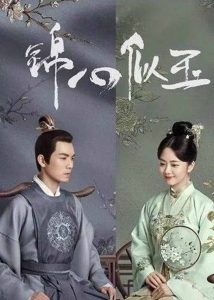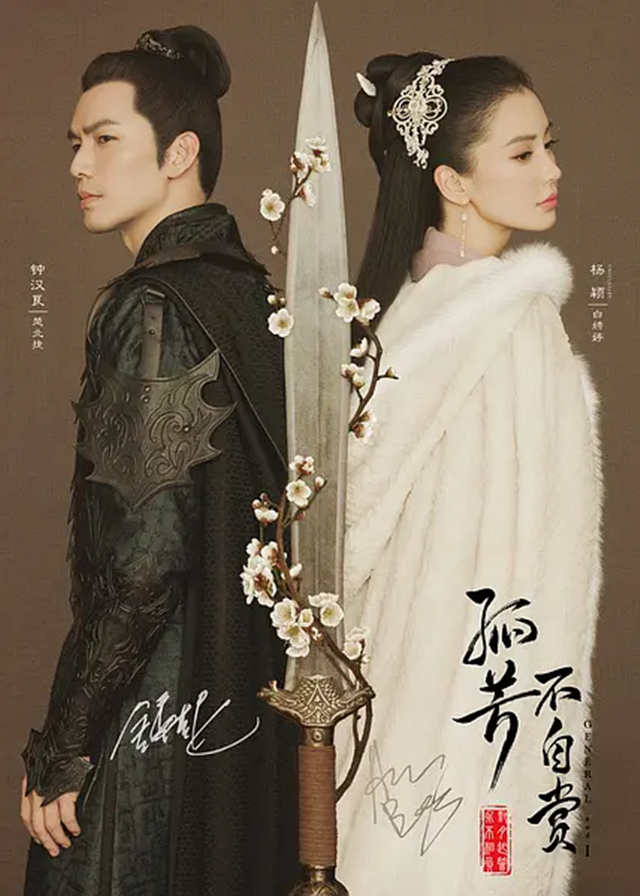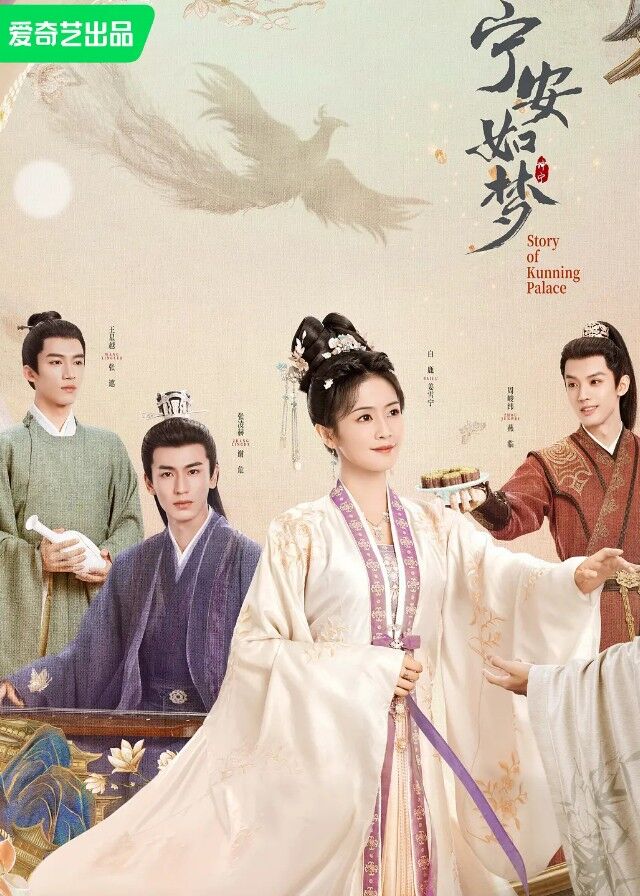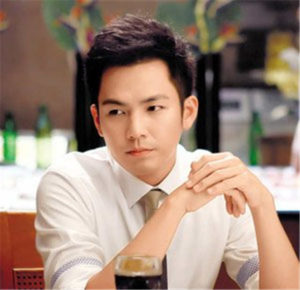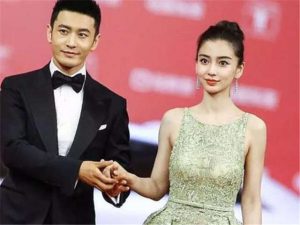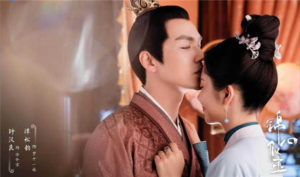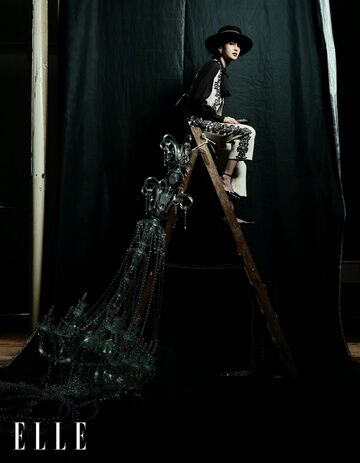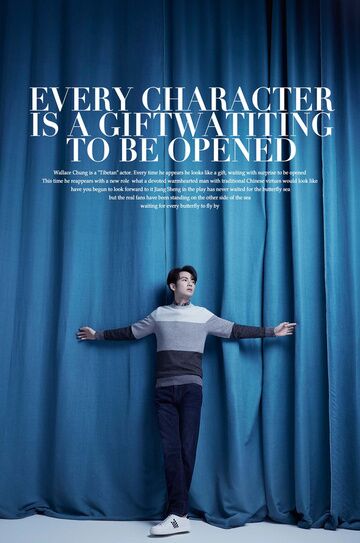General and I Episode 21 Recap
> General and I Recap
- 1
- 2
- 3
- 4
- 5
- 6
- 7
- 8
- 9
- 10
- 11
- 12
- 13
- 14
- 15
- 16
- 17
- 18
- 19
- 20
- 21
- 22
- 23
- 24
- 25
- 26
- 27
- 28
- 29
- 30
- 31
- 32
- 33
- 34
- 35
- 36
- 37
- 38
- 39
- 40
- 41
- 42
- 43
- 44
- 45
- 46
- 47
- 48
- 49
- 50
- 51
- 52
- 53
- 54
- 55
- 56
- 57
- 58
- 59
- 60
- 61
- 62
Prince Zhenbei, Chu Beijie, was summoned to the palace hall to offer incense. During the ritual, the incense he held refused to light, leading some observers to wonder if the Queen's spirit was unwilling to accept his offerings, and whether the deaths of the two princes were connected to him. Despite the inauspicious sign, Sima Hong, the Emperor, concluded the funeral ritual, dismissing everyone except Chu Beijie, whom he brought to the ancestral temple.
Inside the temple, Chu Beijie knelt before the memorial tablets of the Queen and the two princes, bowing his head in sorrow and wishing them peace. Sima Hong then questioned who should inherit his throne, lamenting the loss of his offspring who had "already turned into ashes."
Chu Beijie attempted to console him, suggesting he was still in the prime of his life and would have more sons, but Sima Hong dismissed the idea, stating there would be no more children between him and the late Queen, whom he had deeply loved and vowed to grow old with.
Sima Hong then revealed that the unlit incense reminded him of a painful truth: the pain Chu Beijie felt losing Bai Pingting was akin to his own grief for the Queen. This shared pain, he asserted, would be a permanent scar between them, making it impossible for him to trust Chu Beijie unconditionally or for Chu Beijie to act without self-preservation.
Sima Hong declared that even a hint of hesitation in Chu Beijie’s loyalty diminished his own sense of security, making Chu Beijie unsuitable to command the three armed forces. He then announced his decision to reclaim Chu Beijie's tiger seal, demanding time and action as proof to regain his trust.
In response, Chu Beijie retrieved his tiger seal and, before the Queen's and ancestors' tablets, swore an oath never to seize power or usurp the throne, vowing eternal loyalty to the Sima clan, and invoking divine wrath if he broke his promise. Sima Hong acknowledged the oath, urging Chu Beijie not to disappoint him. Later, as Chu Beijie remained in the ancestral temple, He Xia arrived unexpectedly.
He Xia scorned Chu Beijie's pretense of grief, stating the dead could not see. When Chu Beijie ordered him to leave, He Xia retorted, accusing Chu Beijie of being seduced by a woman, causing the deaths of the Queen and the Great Jin's heirs, and leaving the country without a successor, calling these "serious offenses punishable by death." He challenged Chu Beijie's right to kneel before his forefathers. Chu Beijie declared his conscience clear, unlike a "villain" like He Xia.
He Xia further taunted Chu Beijie, alleging he had killed Bai Pingting to save his own "miserable life," a cruel and ruthless act, and questioned if Sima Hong still trusted him, gloating over Chu Beijie's supposed suffering. Chu Beijie warned He Xia to leave the ancestors' presence, or he would not be spared. He Xia stated he had come to accomplish one thing, leading to a fierce fight between them.
Despite gaining the upper hand, Chu Beijie refrained from killing He Xia, declaring that as Great Jin was in national mourning, he would not shed blood. He Xia mocked Chu Beijie for acting like a man now, saying a true man would not have killed Bai Pingting to save himself. He then kicked Chu Beijie, declaring the kick "for Pingting."
He delivered a second kick, accusing Chu Beijie of using "sinister and cunning schemes" to destroy the House of Prince Jing'an, and stated this kick was "for my parents." He Xia concluded by saying he could not bear to see Chu Beijie die yet, enjoying his "weak and pitiful" state. News of He Xia's unannounced departure reached Sima Hong, who speculated He Xia had sought aid for Bailan against the Liang army.
Sima Hong reprimanded Chancellor Zhang, who subtly deflected blame by lamenting his own lack of military authority, implying he could not mobilize troops without Prince Zhenbei's involvement. Sima Hong then called Chu Beijie to the Imperial Hall, where an imperial decree was announced.
The decree stated that Chu Beijie, deeply grieved by the demise of the princes and the Queen and conscious of his "careless omission of responsibility," had requested to be stripped of his title as Prince Zhenbei, return the tiger seal, and be relieved of his command of the three armed forces.
However, in light of his past military merits, he would only receive a minor punishment, a warning to others, and would be conferred the title of General Zhenbei, a fourth-rank official. Sima Hong then sought Chu Beijie’s opinion on the Battle of Bailan. Chu Beijie reported that the Liang Army's swift, unresisted advance into Bailan, despite their lack of a just cause, seemed suspicious, and advised caution.
Sima Hong, complaining of a headache, demanded his golden pills, dismissing Chu Beijie's warning about the medicine's side effects, claiming they were merely tonics. Chancellor Zhang seized the opportunity, arguing for Jin's intervention, emphasizing Bailan's strategic importance for trade and the fleeting opportunity to control it. Sima Hong abruptly appointed Chancellor Zhang as Military Governor, entrusting him with the tiger seal and full military authority for the expedition to Bailan.
Chu Beijie protested, deeming it inappropriate to give such authority to a civilian official unfamiliar with military matters. Sima Hong, however, dismissed his concerns, asserted his right to decide, and abruptly adjourned the court. As the court dispersed, other officials expressed their bewilderment at Sima Hong's erratic behavior and his casual handing over of the tiger seal to a civilian.
Armed with the tiger seal, Military Governor Zhang immediately issued an order to General Zhenbei, Chu Beijie, to lead 10,000 elite soldiers to Bailan to repel the Liang Army. Chu Beijie pointed out the Liang Army numbered over 100,000, rendering 10,000 elite soldiers an insufficient force. Chancellor Zhang argued that Great Jin was merely sending reinforcement, and the Bailan Army would constitute the main force. He then provocatively asked if Chu Beijie feared the Liang Army.
Chu Beijie, acknowledging a military order was paramount, accepted but requested an additional 20,000 reinforcement troops for contingencies. Chancellor Zhang readily agreed, assuring Chu Beijie that he would prepare everything and emphasizing this was Chu Beijie's chance for redemption. Before his departure, Chu Beijie met with Hu Kun, who had come from the East Mountain country house to check on his safety on behalf of General Moran.
Chu Beijie instructed Hu Kun to return and report that Prince Zhenbei was well, currently discussing important matters with Sima Hong, and his return would be delayed by a few days. He specifically ordered Chu Moran to remain loyal and attentive to his duties, forbidding any unauthorized actions.
He also gave Hu Kun a pouch containing the golden pills that Sima Hong was taking, instructing him to deliver it personally to Miss Zui Ju and ask her to uncover its secret. Chu Beijie then addressed his troops, explaining that their intervention in Bailan was necessary because the Liang Army's unprovoked attack on their vassal state likely served as a stepping stone for an invasion of Great Jin.
He galvanized them by asserting they could not stand idly by while their neighbor's house was on fire, and they must drive the Liang Army back for the peace and security of their own people. Meanwhile, Zui Ju gifted Bai Pingting a new embroidered waistband adorned with sixteen chrysanthemums, expressing admiration for Bai Pingting's needlework and playful desire to learn such "girl skills" for her own future marriage.
They shared winter plum tea, reflecting on life's bitter and sweet moments, with Bai Pingting suggesting some lives are destined to be hard. Later, Chu Moran arrived, presenting Bai Pingting with a famous Han Dynasty zither known as the "Paulownia Phoenix zither," explaining that Chu Beijie had sought it out to compensate for breaking her previous one, believing only she was worthy of such a treasure. Zui Ju, impressed by its antiquity, urged Bai Pingting to play.
Although Chu Moran jokingly questioned if Zui Ju, like a "cow," would appreciate such music, Bai Pingting countered that if music was not understood, the fault lay with the player, not the listener. She then began to play the ancient zither, but mid-melody, a string suddenly snapped, filling Bai Pingting with a sense of foreboding.





